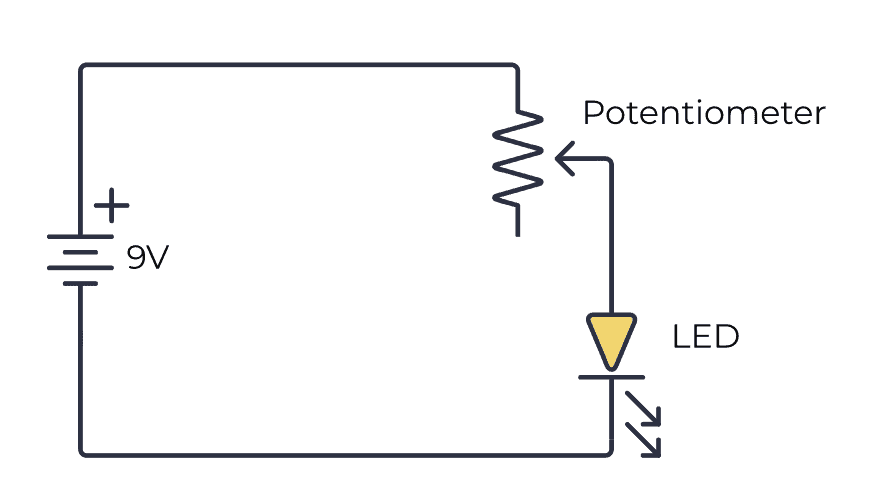
The Potentiometer Pinout, Wiring, and How It Works
A potentiometer is a simple mechanical device that comes in many different forms. It provides a variable amount of resistance that changes as you manipulate it. The examples in this article uses a potentiometer with a twisting shaft, one of the more common versions of a potentiometer you will find.

potentiometer_diagram Electronics Go
AboutTranscript. Let's explore, logically, the working principle of a slide-wire potentiometer. A potentiometer can measure voltages, with higher accuracy than a voltmeter, without drawing a current from the main circuit. Created by Mahesh Shenoy.
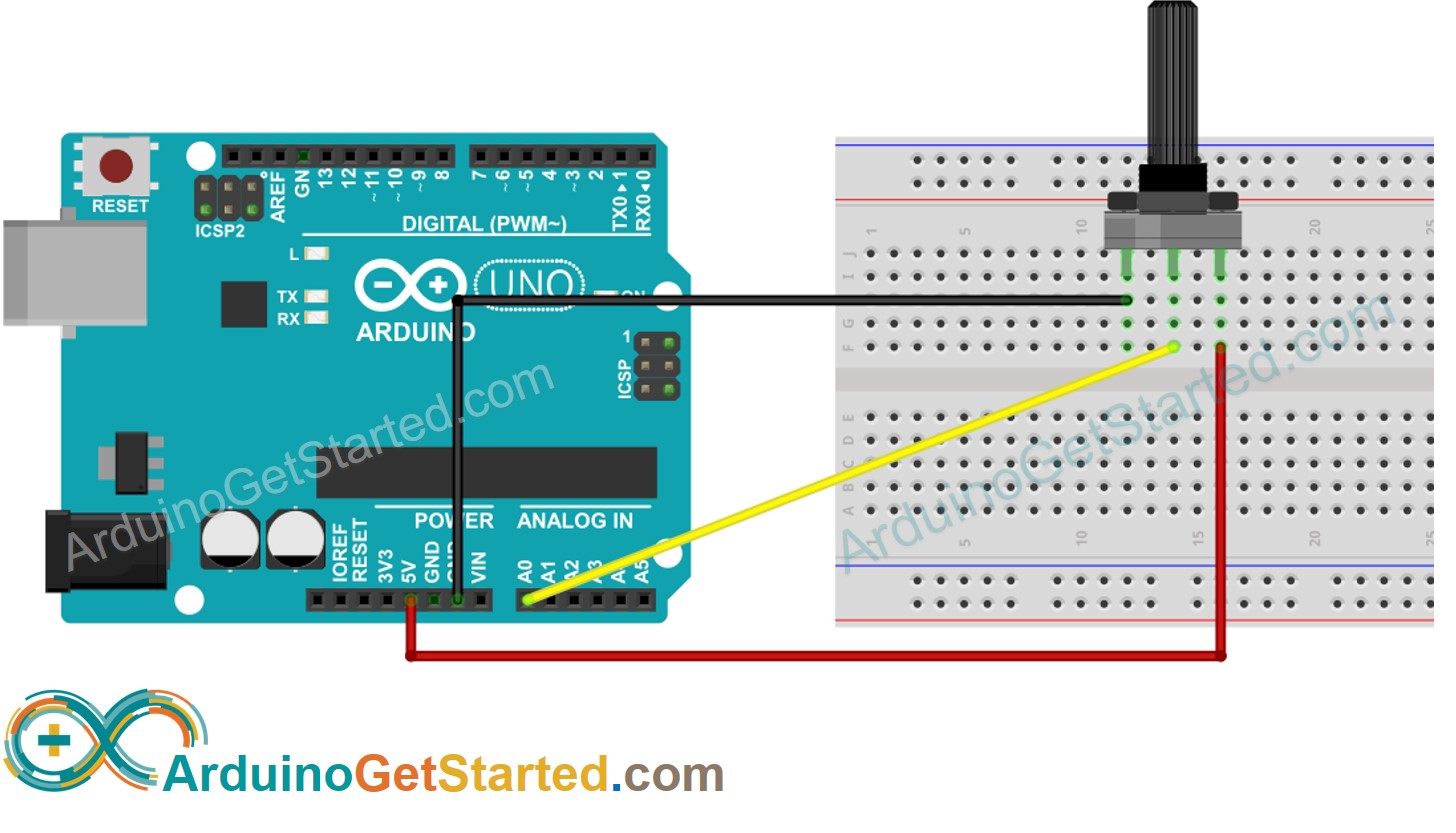
Arduino Potentiometer Arduino Tutorial
About Potentiometer Rotary potentiometer (also called rotary angle sensor) is used to manually adjust the value of something (e.g volume of the stereo, the brightness of lamp, zoom level of oscilloscope.) Pinout Potentiometer usually has 3 pins: GND pin: needs to be connected to GND (0V) VCC pin: needs to be connected to VCC (5V or 3.3v)
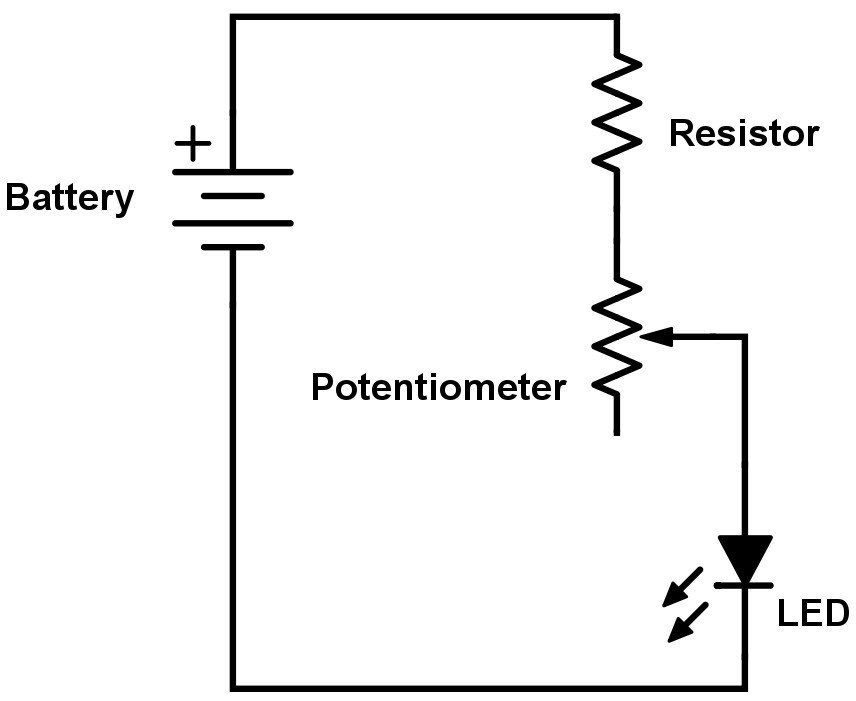
The Potentiometer And Wiring Guide Build Electronic Circuits
Potentiometer Pinout Diagram. The pinout of the potentiometer varies according to the type of potentiometer like sliding, rotating, or trim.. These pots are fixed in the circuit to make adjustments in the supply voltage. The resistive track in these pots is made of cement or carbon composition. The rotary wiper adjustments can be done with a.
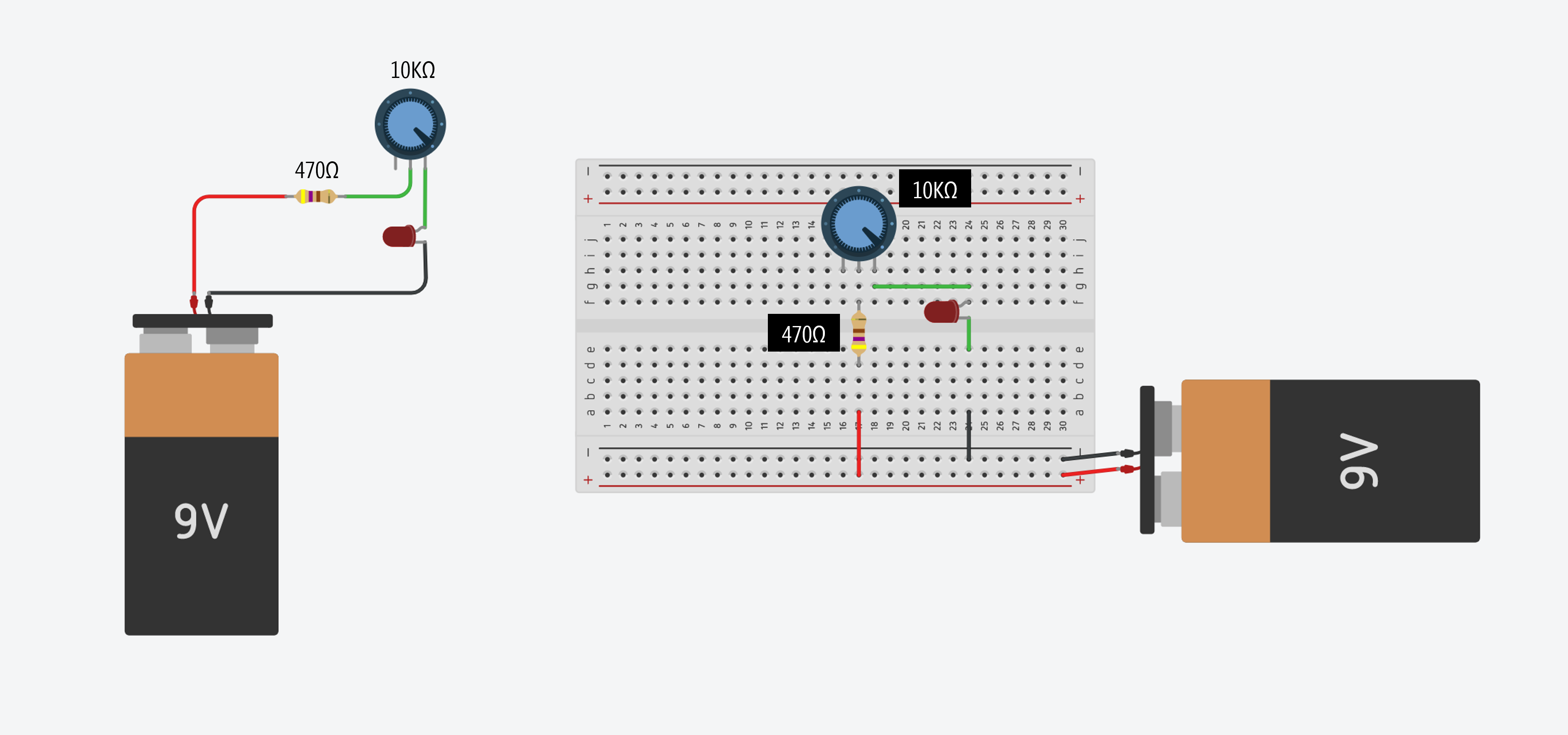
Wiring A Potentiometer As A Variable Resistor
A potentiometer is a type of variable resistor. These passive components are designed to control electrical resistance, measured in Ohms (Ω). Multiple different variations are available, including trimmer and rotary potentiometers, but the functional principle remains the same.
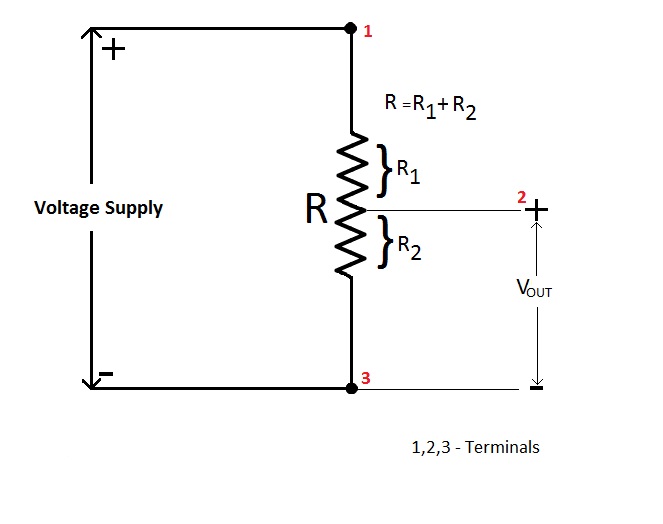
What is Potentiometer? Diagram, Symbols, Characteristics Linquip
Potentiometers, or pots, are a type of resistor used to control the output signal on an electronic device, like a guitar, amplifier, or speaker. They have a small shaft on top that functions like a knob; when the user turns the shaft, it turns the resistance on the signal up or down.

Linear Potentiometer Circuit Diagram shockwavetherapy.education
The schematic symbol for a basic potentiometer is shown in Figure 3.8.3 . For convenience, its terminals are labeled A and B for the two ends, and W for the wiper arm. Figure 3.8.3 : Schematic symbol for a potentiometer, with labels. A pot can be visualized as two resistors in sequence with a tap between them. The total resistance never changes.
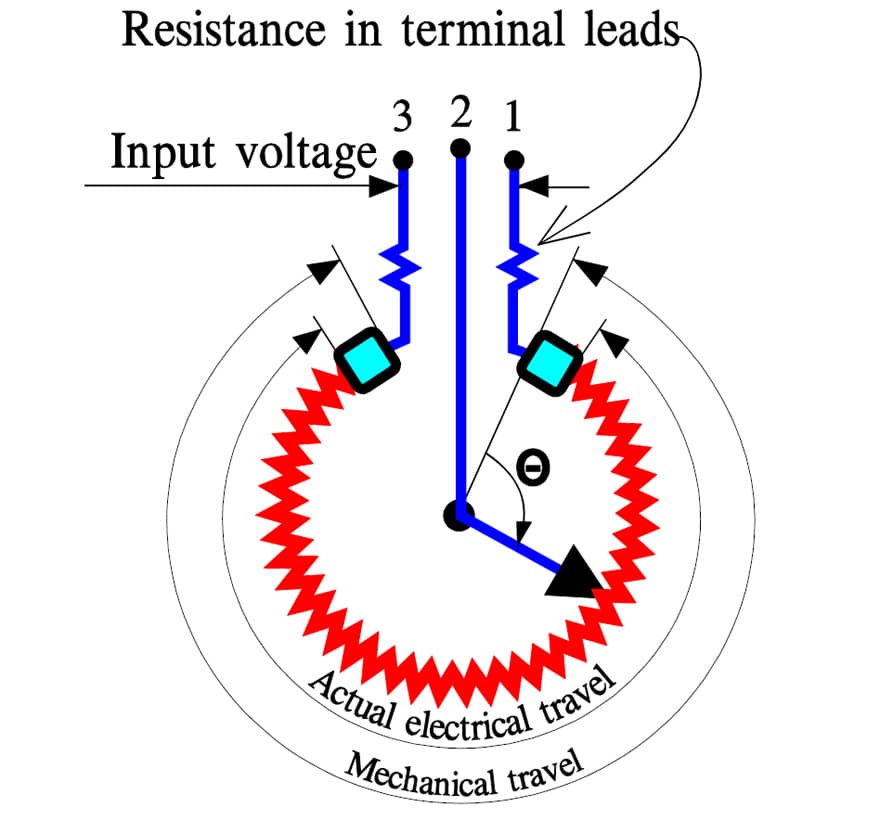
Potentiometers Basic Principles
Table of Contents What is Potentiometer? What are Potentiometers made of? Shared Characteristics of Potentiometers Potentiometer Symbol Construction of Potentiometers Potentiometer Diagram Types of Potentiometer What does a potentiometer do and how does it work? Potentiometer Circuit What is a potentiometer used for?
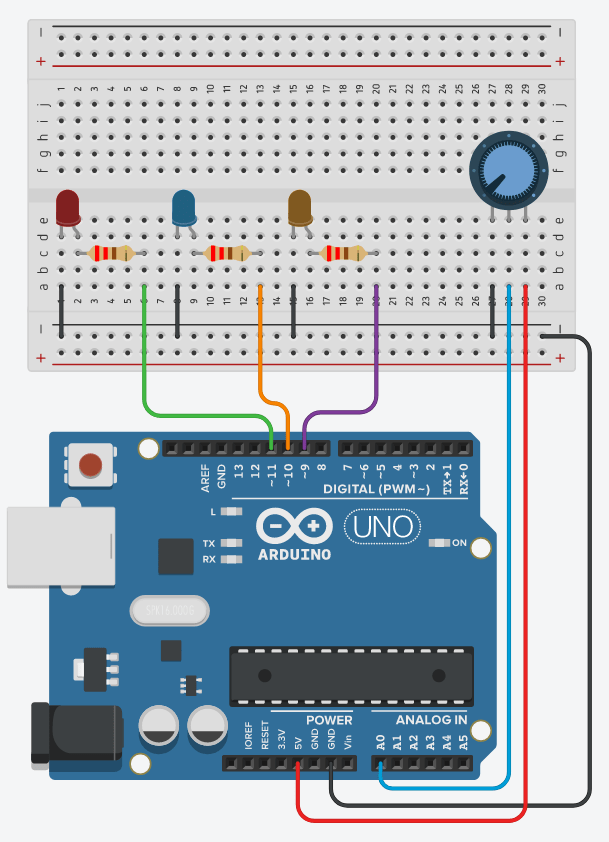
Arduino Potentiometer with Multiple LEDs [Tutorial] The Robotics BackEnd
In a circuit diagram, a potentiometer is represented by one of the two symbols below: How Does a Potentiometer Work? A potentiometer has 3 pins. Two terminals (the blue and green) are connected to a resistive element and the third terminal (the black one) is connected to an adjustable wiper.

The Arduino Segment Potentiometer with LEDs and "if" commands
Let us assume a 10k potentiometer, here if we measure the resistance between terminal 1 and terminal 3 we will get a value of 10k because both the terminals are fixed ends of the potentiometer. Now, let us place the wiper exactly at 25% from terminal 1 as shown above and if we measure the resistance between 1 and 2 we will get 25% of 10k which.
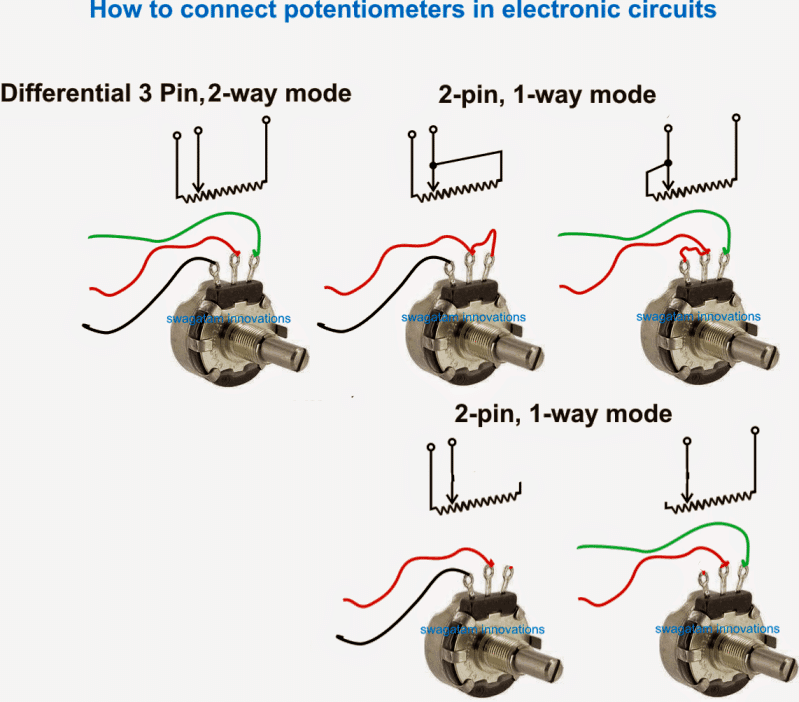
How a Connect a Potentiometer Homemade Circuit Projects
The potentiometer has been an essential, passive circuit component from the earliest days of electricity and electronics. It is a three-terminal device with an accessible resistor element, providing a voltage divider function via its user-settable wiper on a rotating shaft.
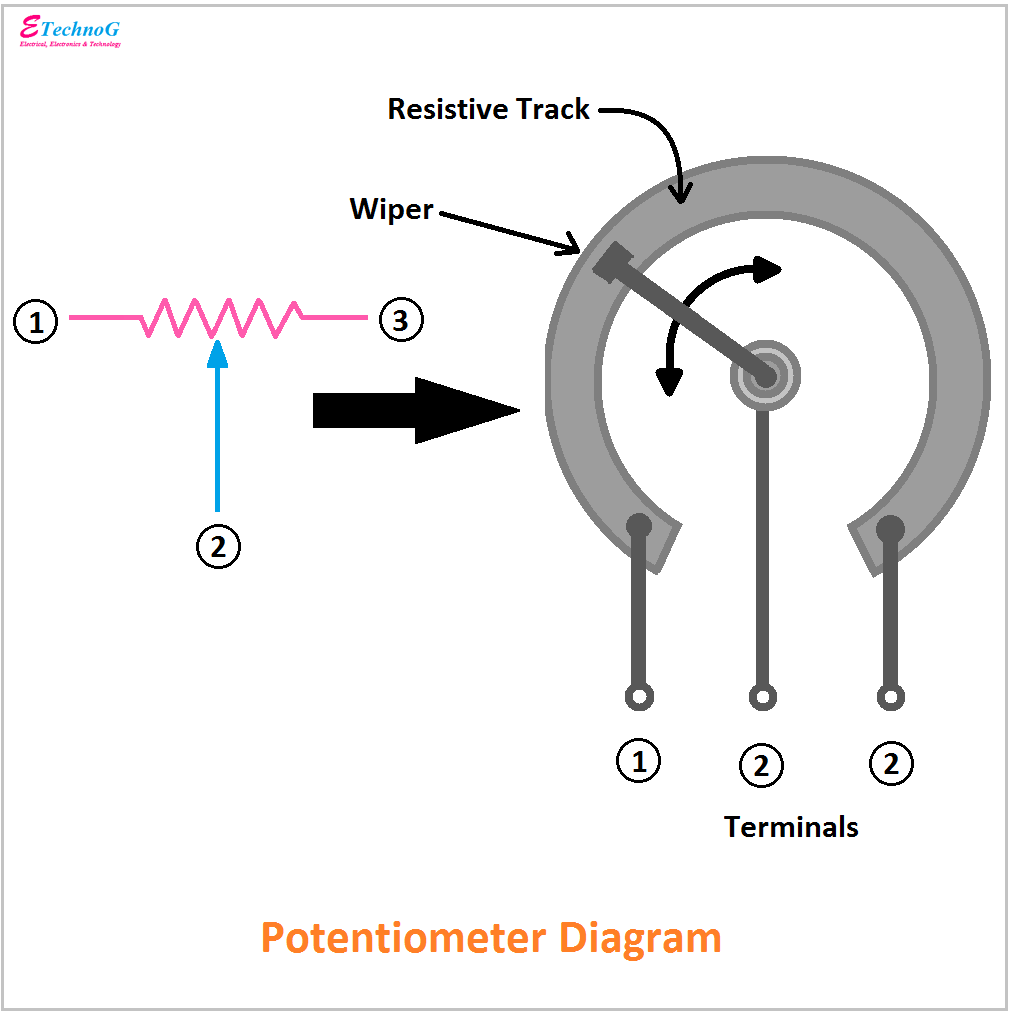
Circuit Diagram Of Potentiometer
Potentiometer Connection, Working, Circuit Diagram, and Wiring Guide is an important concept that every electrical engineer should know about. It is used to control the voltage in a circuit and can be used in many different applications. Potentiometers are used in audio equipment, lighting systems, and many other electronic devices.

[Proper] Potentiometer Connection and Circuit Diagram ETechnoG
A potentiometer circuit diagram is a graphical representation of the components used in a potentiometer circuit, such as resistors, transistors, and capacitors. The purpose of a potentiometer circuit is to control the voltage level of an electronic signal.

[Proper] Potentiometer Connection and Circuit Diagram ETechnoG
The potentiometer, commonly referred to as a "pot", is a three-terminal mechanically operated rotary analogue device which can be found and used in a large variety of electrical and electronic circuits. They are passive devices, meaning they do not require a power supply or additional circuitry in order to perform their basic linear or.
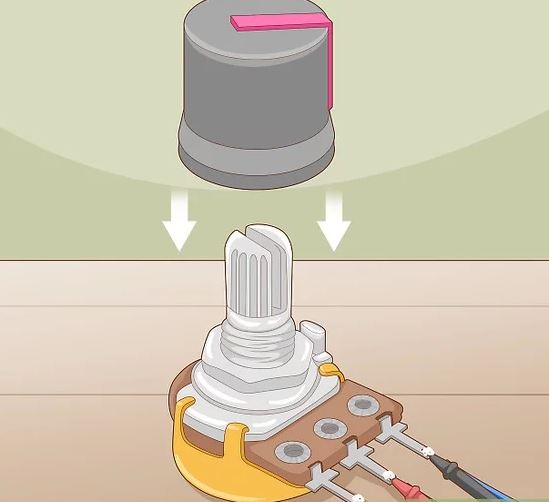
Potentiometer Connection, Circuit Diagram, Wiring Guide Linquip
In the circuit diagram shown below, the terminals of the potentiometer are marked 1, 2 and 3. The voltage supply is connected across terminals 1 and 3, positive lead to terminal one while negative lead to terminal three. The terminal 2 is connected to the wiper. Potentiometer Circuit Diagram

How to Connect a Potentiometer in a Circuit YouTube
A potentiometer circuit symbol looks like a resistor with an arrow towards it. A potentiometer is a single component that (in its simplest form) consists of a coil of wire with a sliding contact, midway along it. Potentiometer circuit diagram. Moving the slider (the arrow in the diagram) changes the resistance (and hence potential difference.